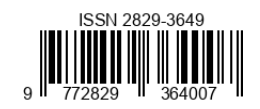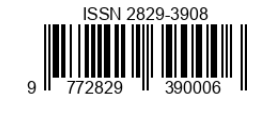Transforming Sang Kancil Folktale Into Visual Art With Autoethnography
DOI:
https://doi.org/10.56910/literacy.v2i2.899Keywords:
Autoethnography, Folktale, Sang KancilAbstract
This practice-based research has produced visual art, particularly drawings based on significant animal folktale observations. Folktales symbolize human behavior and culture. Malays use folktales to educate, advise, and satirize. The study covers Dewan Bahasa dan Pustaka's (2015) traditional literary script, Sang Kancil Membilang Buaya. Chang (2008) autoethnography guided artwork development. Visual artists preserved folktales by adding aesthetic appeal and fresh knowledge to Sang Kancil tales. The transmission mechanism provided value by showing visual art with digital presentations without changing the story. This research analyses textual and visual data on Sang Kancil Membilang Buaya through artworks to increase cultural knowledge and awareness of oral tradition and participation among society, in accordance with UNESCO's goals to preserve the intangible heritage.
References
Bascom, W. R. (1965). The Forms of Folklore: Prose Narratives. Journal of American Folklore, 78.
Chang, H. (2008). Autoethnography as method. Walnut Creek, CA: Left Coast Press, Inc.
Christina, A. M. (2023). Angela Carter's "The Company of Wolves" as Folktale Variation (Literary Analysis). https://owlcation.com/humanities/Angela- Carters-The-Company-of-Wolves-as-Folktale-Variation
Fong, L. Y. (2013). A History of Classical Malay Literature. Jakarta: Yayasan Pustaka Obor Indonesia.
Fytullah Hamzah, A. M. (2020). Mitos Kosmopolitan Nusantara. Sarawak: UNIMAS Publisher.
Lee, C. (2018). Culture, consent, and confidentiality in workplace autoethnography. Journal of Organizational Ethnography, 7(3), 302–319.
Lwin, S. M. (2009). Revisiting a structural analysis of folktales: A means to end?” The Buckingham Journal of Language and Linguistic, 69-80.
Sulaiman, S.A.S. (2011). Tradisi Lisan : Satu Penilaian Semula. Universiti Malaysia Kelantan.
Taylor, A. (1965). Folklore and the Student of Literature. New Jersey: Prentice Hall.
Wan Malini W. I., Nor Azan M. Z., Fadhilah R., Hafiz M. S. (2018). Digital Preservation of Intangible Cultural Heritage. Indonesian Journal of Electrical Engineering and Computer Science. Vol. 12, No. 3, December 2018, pp. 1373~1379. DOI: 10.11591/ijeecs.v12.i3.pp1373-1379
Winstedt, R. O. (1939). A history of classical Malay literature. With a chapter on modern developments by Zainal Abidin Ahmad. Journal of the Malayan Branch of the Royal Asiatic Society.
Yusof, M.M.Y. (2016). Pemuliharaan Warisan Tidak Ketara di Malaysia. Universiti Kebangsaan Malaysia.







